Ahead of the Billboard Awards this coming week, I started thinking about the current state of music and where we are in our discourse on race in the United States. Music is such an integral part of culture, and often reflects the values or captures the sentiment of a movement, a moment, or the desire to escape.
The Pandemic’s Impact on Music
The pandemic and our increased time indoors has significantly shaped the music industry. The economic impact of the pandemic on the music industry have meant fewer album and single releases, as consumers are not able to attend tours, festivals, or have the same discretionary income to spend as they would in better economic seasons. In some ways, this has created a need to innovate, which saw the rise of pandemic programming like DJ Nice’s Club Quarantine, the rise of virtual DJs and Pass The Mic, and the start of Verzuz.
Women Shift the Verzuz Paradigm
The Verzuz “battles” that have stood out most to me have been the all-women pairings, turning the initial competitive nature of the series into a more celebratory vibe. Erykah Badu & Jill Scott shifted the paradigm of the series, leading the way to a healing rift of Brandy & Monica’s reunion. We were then treated to a legendary masterclass with Gladys Knight & Patti LaBelle (and Dionne Warwick) that opened up the door to a broader base of listeners. And most recently, Xscape and SWV reminded us of the Golden Era of contemporary R&B and the importance of the collective. The women shouted out other girl groups and paid homage to one of the most influential groups, The Clark Sisters, as SWV’s Coko snagged a hit covering “Endow Me” and Xscape gaining a hit with their cover of “Is My Living in Vain.”
Women Supporting Women
Recognizing Legends: Biopics and EPs
The Clark Sisters, and several other legendary women were highlighted during the pandemic with biopics intended to honor and give flowers. Queen Latifah, Mary J Blige, and Missy Elliott produced “The Clark Sisters: The First Ladies of Gospel,” the story of Detroit’s finest that are listed as musical influences for artists including Whitney Houston, Mariah Carey, Beyonce, and the producers themselves. Over the span of the pandemic, we’ve been given a Salt-n-Pepa biopic (Queen Latifah as executive producer), Mahalia Jackson’s story (Robin Roberts as executive producer), Aretha Franklin’s story, and a Tina Turner documentary. For music novices like me, a bit of research revealed that Mahalia influenced and worked with Aretha, who was an inspiration for The Clark Sisters who honored her at her funeral, and Queen Latifah is a common link as producer showing us a clear line of Black women musicians leaving legacies.
Generational Baton Passing
If the legends of the early days of popular Black musicianship are being honored, and those from the 90s are celebrating each other at Verzuz battles, then the women of today are taking note. The last year has seen an impressive set of collaborations of artists across generations and genres. Mariah Carey, the Queen of Christmas cheer, collaborated with younger generation artists Jennifer Hudson (and Ariana Grande) to record “Oh Santa.” Hudson, who will play Aretha Franklin later this year, being chosen to feature on a Mariah Christmas song is an honor that likely ranks alongside her Oscar win for Dreamgirls. In the summer of 2020, Nicki Minaj featured on Doja Cat’s “Say So” remix and Beyonce featured on Megan Thee Stallion’s “Savage” remix — blending both genres and generations.
Contemporary collaborations in the last few months have also included Jazmine Sullivan featuring Ari Lennox and H.E.R on her Heaux Tales project. Megan Thee Stallion and Cardi B’s joint single, “WAP,” inspired significant cultural commentary and praise from acting legends Halle Berry and Viola Davis (see tweets below). Chloe x Halle’s “Do It” remix included a massive line up of women rappers that is reminiscent of “Lady Marmalade (2001)” featuring Mya and Lil Kim.
Studying History To Honor Our Legends
The Methodology
And when I further reflected on the state of music and how the pandemic has shown us who can standout and who has had to step back, it has seemed that Black women musicians are truly having a moment. It may be that the moment has always been here and is only now being recognized, or the difficulty of the pandemic has provided more opportunity to see the gift that are Black women musicians.
As someone who is not a music expert — I didn’t grow up in a Black church choir, my childhood home was not filled with Motown classics, and I gravitate more toward singles than albums — I thought about how I might set out to learn more about Black women musicians historically.
Should I look at the artists who have won Grammys as the starting point? In a world where Mariah Carey only has 5 Grammys (of 34 nominations) and the recent focus on the opacity of the nomination process makes clear that likely should not be the starting point.
Should I look at BET or NAACP or Soul Train awards as the starting point? I questioned if this approach would be too narrow in seeing the breadth of our impact nationally and historically. For example, the Soul Train first aired in 1987 but Black women have had an impact well before then.
Should I look at award shows at all or streaming charts? Award shows are great ways to see what is valued by voting bodies, yet do not always reflect the visceral reaction for listeners. The short list and the singular winner also over-index on certain artists instead of providing a breadth of artists. Streaming platforms have not been around for more than 20 years and is subject to inflated numbers that show intensity of fandom, but again fails to capture the long history of Black musicianship.
In light of the upcoming Billboard Awards, I decided to focus on Billboard charts, as they date back to 1940. Billboard maintains several charts including genres (e.g. R&B, pop, rock, country), weekly overall charts, and a year-end chart that showcases the top 100 songs. I chose the year-end Billboard Hot 100 because it is a strong snapshot of a year in music, although single release dates and timing during the year impact chart positioning (for better or worse).
Data Deep Dive: 70 years of Black Women on Billboard Dashboard
In order to study to the contribution of Black women on Billboard’s charts, I went back to 1960 to catalog each entry of the year-end Hot 100 chart that included a Black-identifying woman as solo artist or member of a group.
Mapping The Charts
The first snapshot is conceptual, showing the over 180 women charting over 70 years, in order to highlight the sustained impact of Black women on Billboard — and by extension in popular music.
The second snapshot shows the dashboard. You can visit this link to explore the interactive dashboard which includes artists, charting song, position and year.
Visualizing The Golden Era
The third snapshot is also conceptual but much more straightforward. The larger boxes represent the years where there were more charting songs. From the data, it seems the Golden Era of Black women in popular music was in the 1990s. That is to say mainstream popularity and fame — the Black community is still supportive of artists throughout each of the decades. You can visit this link to explore the interactive dashboard which includes year, charting song, and artist to drill down further.
The Women Charting 5 or More Times
The fourth snapshot highlights the charting singles of artists with at least 5 entries on the charts — and impressive feat for an artist of any race or gender. Many of the notable names are not surprising but others are useful in adding to your playlists. You can visit this link to explore the interactive dashboard which includes year, charting song, and artist to drill down further.
Concluding Thoughts
As I went through this veritable catalog of musical geniuses who are singers as well as songwriters, arrangers and producers, I was woefully sad that music history overly focuses on classical composers or rock music. A few other thoughts came to my mind that I hope will be the starting point of a necessary dialogue:
What does it mean to not have mainstream success but do incredibly well on the R&B, gospel, or dance charts — will history forget you?
What happened to girl groups?
Will there be a resurgence in Black women on the charts and what is stopping it?
Why so many Barbaras and Shirleys?
What does it mean to not have mainstream success but do incredibly well on the R&B, gospel, or dance charts — will history forget you?
Few artists are bestowed honorific titles in music such as Queen, King or Princess of a genre. Black artists hold several of these titles including Tina “Queen of Rock n Roll” Turn, Diana “Queen of Motown,” Aretha “The Queen of Soul” Franklin, Donna “Queen of Disco” Summers, Whitney “The Voice” Houston, Mariah “Queen of Christmas,” and Beyonce “Queen Bey” Knowles-Carter. Much like actual royal titles, these honors usually pass to new generations and the elder potentially forgotten.
Even still many artists who have made a profound impact on music by influencing other artists or their successes being confined to a single genre are largely missing from the lay person’s understanding of music. One artist that comes to mind for her influence on the resurgence of “blue-eyed soul” is Betty Wright (read more about her here). Another artist is Shirley Ellis whose “Name Game,” I hear in grocery stores and had little idea about her until a google search for the lyrics.
Are there other Black women artists that you think have largely been overlooked?
What happened to girl groups — and will they ever make a comeback?
The 1960s saw all Black Girl Groups including The Shirelles, The Marvelettes, The Chiffons, and The Supremes. We know their songs from movie soundtracks, holiday and cookout playlists, and for some the foundation of secular music. There was a brief resurgence in 1990s with SWV, Xscape, En Vogue, and TLC. Perhaps record labels no longer engineer girl groups or sign already formed groups as they once did. It now seems they are sure to have just one Black girl.
If girl groups are not possible, is there space more collaborations like “Ladies Night” featuring Lil Kim, Missy Elliott, Da Brat & Left Eye?
Will there be a resurgence in Black women on the charts and what is stopping it?
This question is what sits the heaviest with me. Should artists enter an industry that includes predatory contracts that have bankrupted many artists even today? What are the pressures of an “unconventional” artist in sound or appearance, and is there a healthy way for Black women to enter the industry that allows them to create art with as much creative freedom as non-Black, male artists? What does it mean for the Black sound and aesthetic to be emulated by non-Black artists and cultivated by record labels? What does it mean to enter an industry that will pit you against the few other women — in ways that men are not subjected to? With all of these considerations in mind, I would love to see more Black women making music AND for their impact to be codified in the music history books.
Why so many Barbaras and Shirleys?
While compiling this list, the recurring names I saw were Barbara — Barbara Mason, Barbara Lynn, Barbara George, & Barbara Lewis — and Shirley — Shirley Ellis & Shirley Bassey. Of course these incredibly popular names are less about the artists and more so a funny reference to one of the greatest songs of all time, Shirley Brown’s “Woman to Woman.”
As any good research project teaches us, we should leave with more questions and a hope that the work completed inspires others. What questions came to mind for you while reading this and exploring the dashboard?
If the research, data, and analysis in this article was valuable to you and your understanding of Black culture, please consider showing your gratitude with a cup (or two) of coffee to the author.



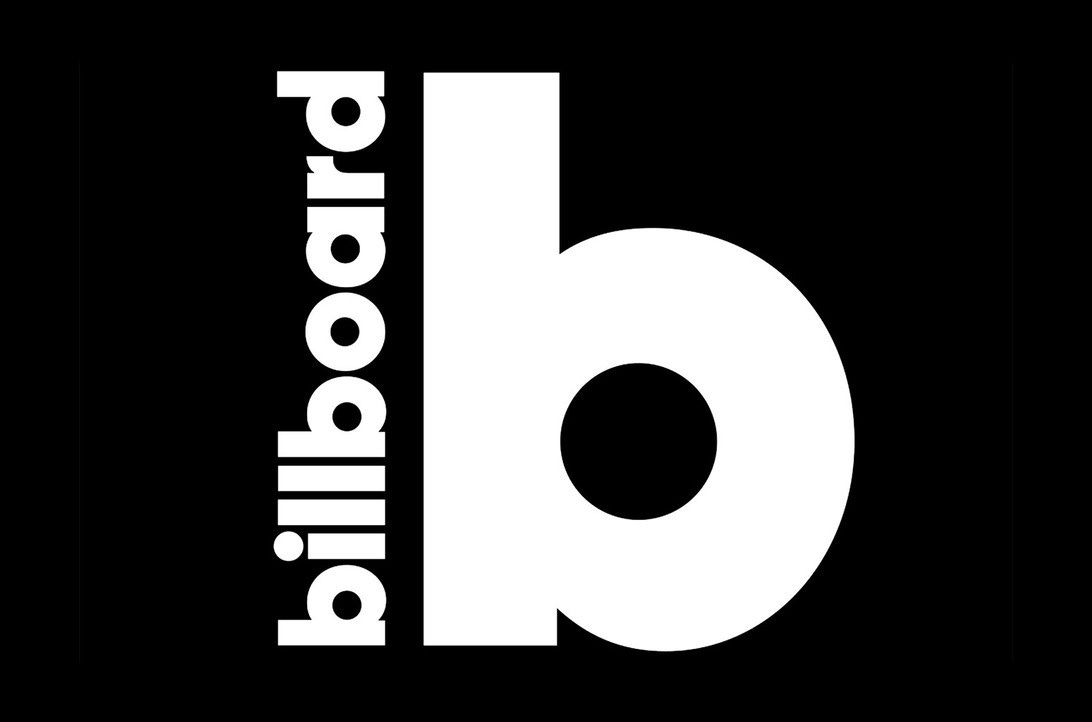

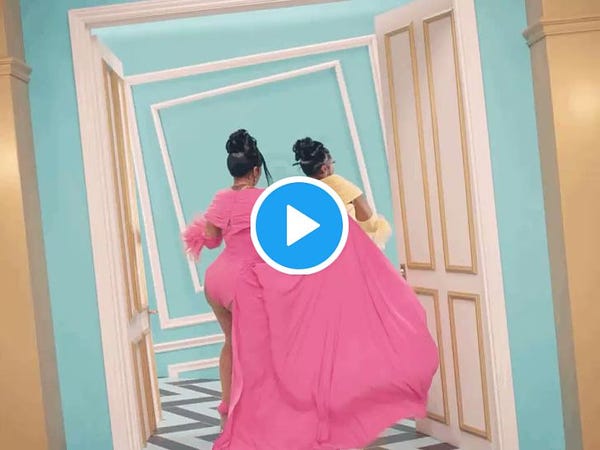


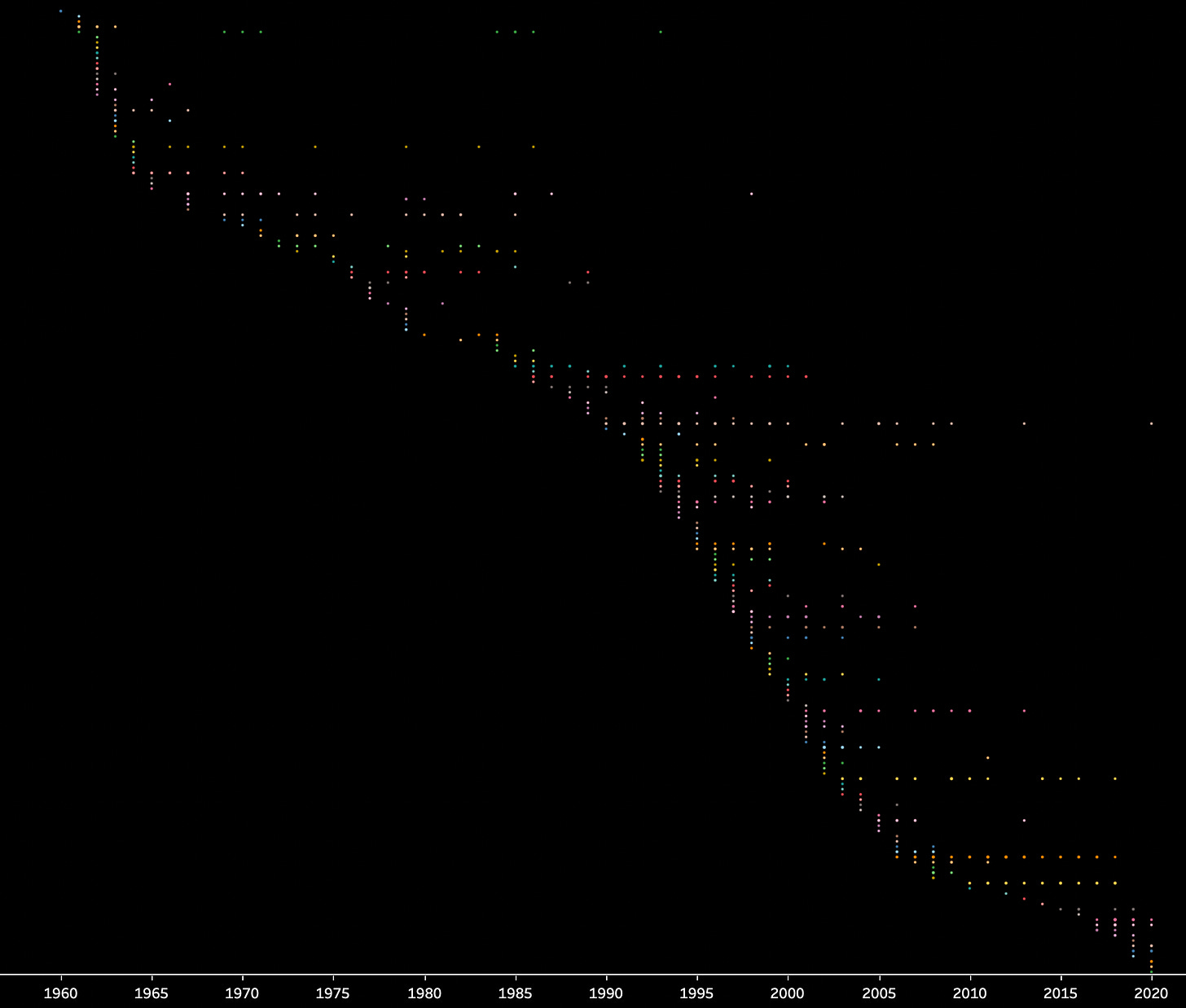
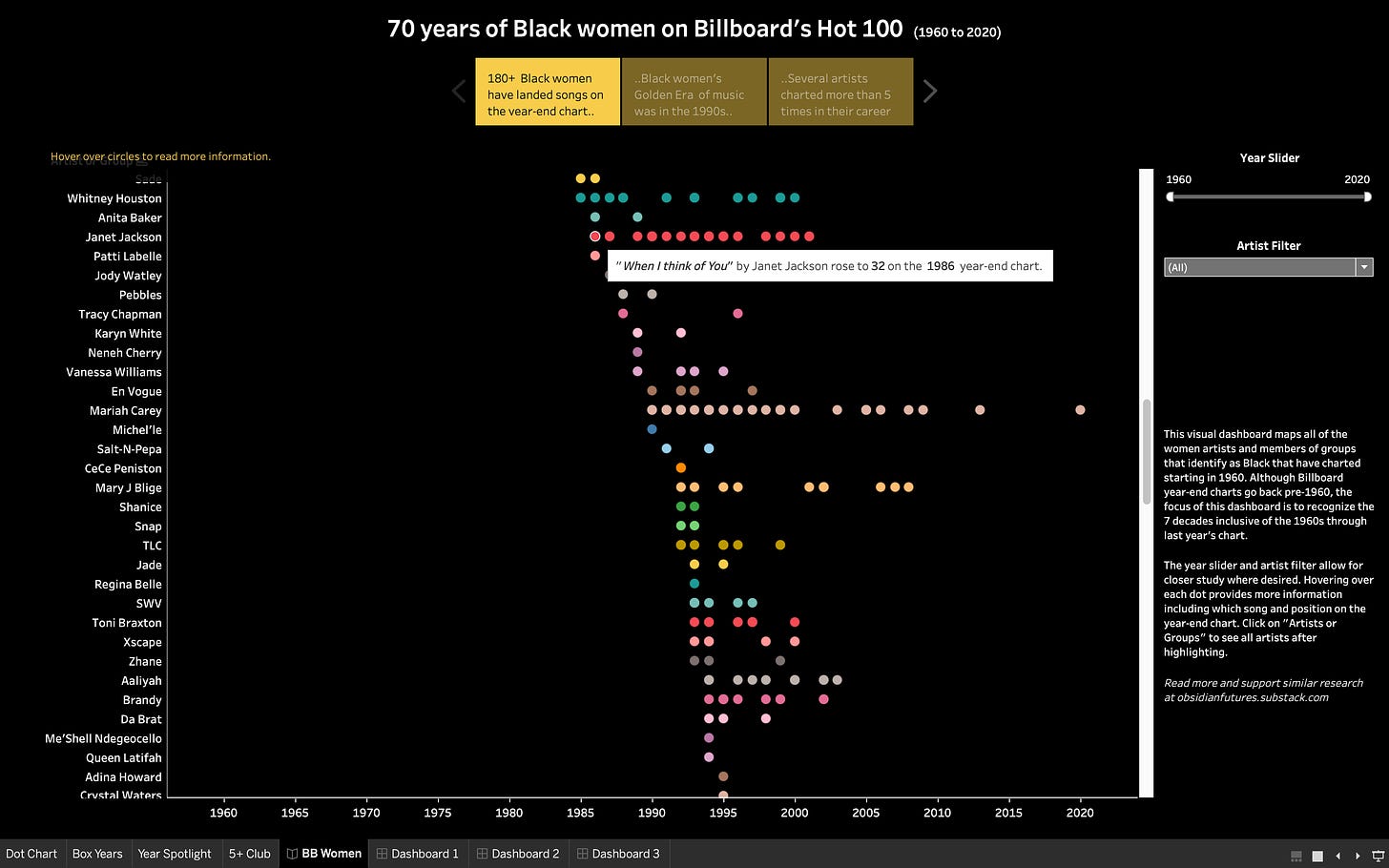
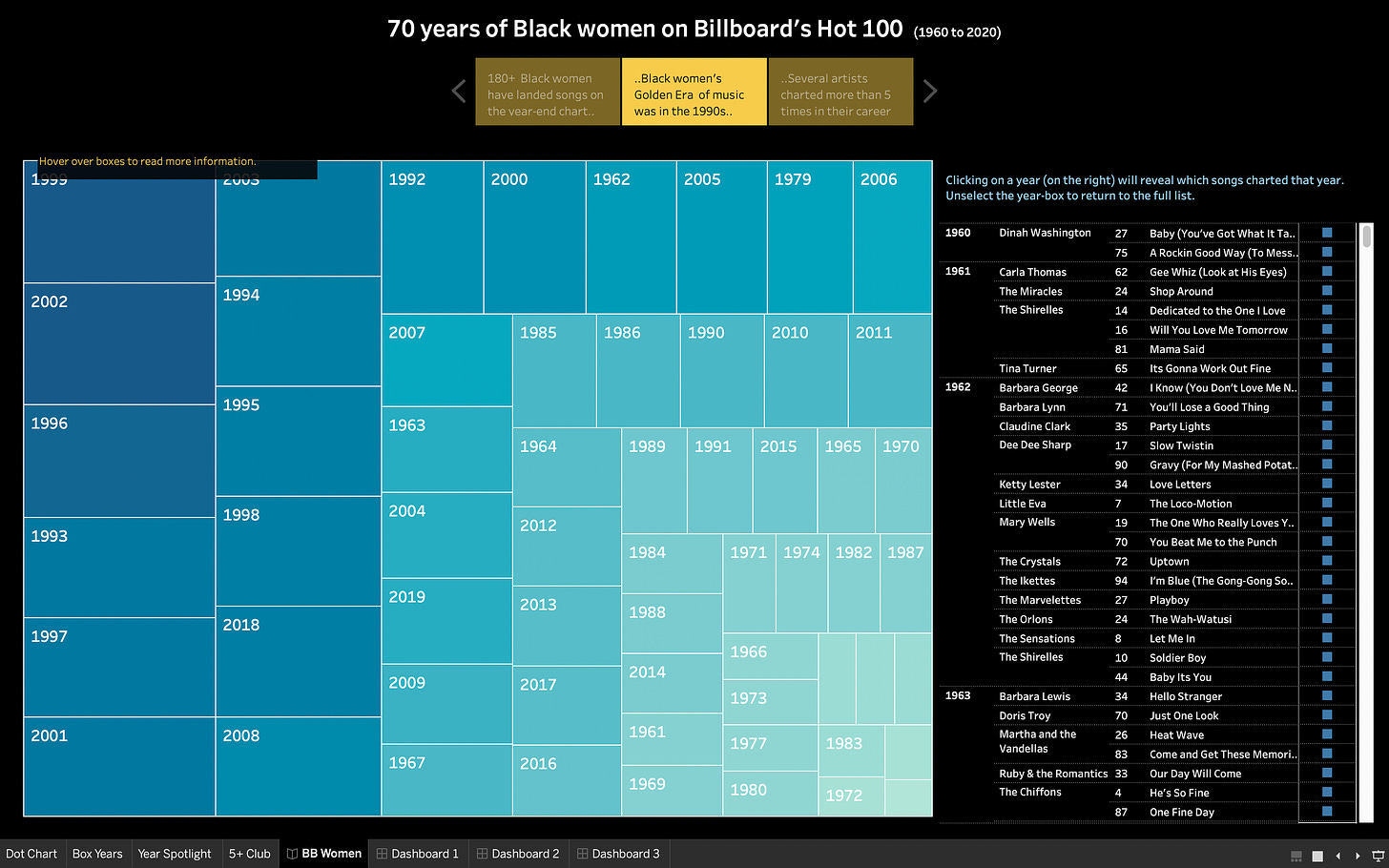
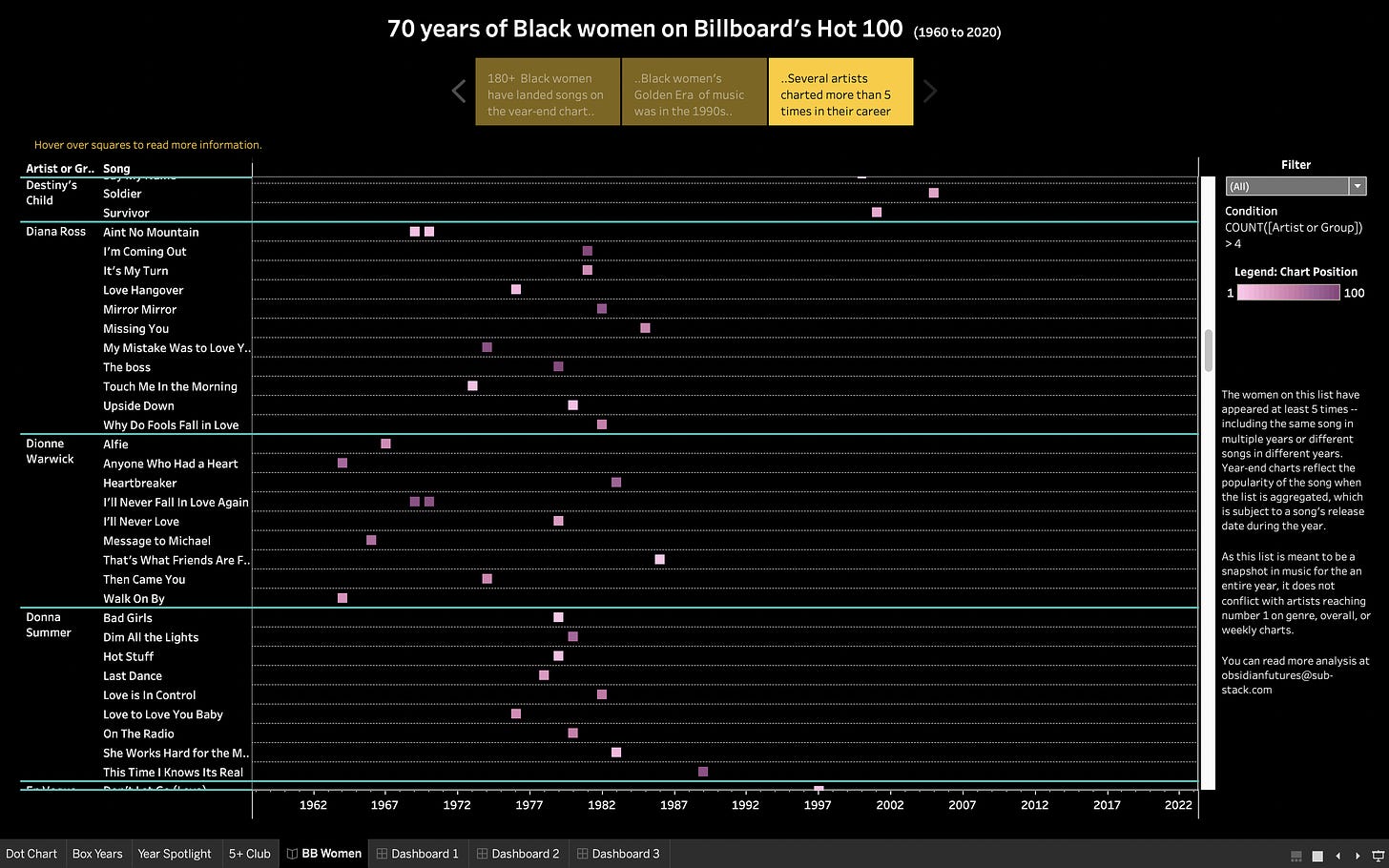
Check us out on Instagram: https://www.instagram.com/p/CPJCA1JHt4Z/
the treemap viz is chef's kiss, this was a dope read overall and the interactive tableau sliced the data in all the interesting ways
also, the Black women artists with 5 songs or more charted made me see which artists were most responsible for "carrying" the era, super cool to see.
and a quick question- how did you collect all the data to start?
thanks for writing this, really cool work